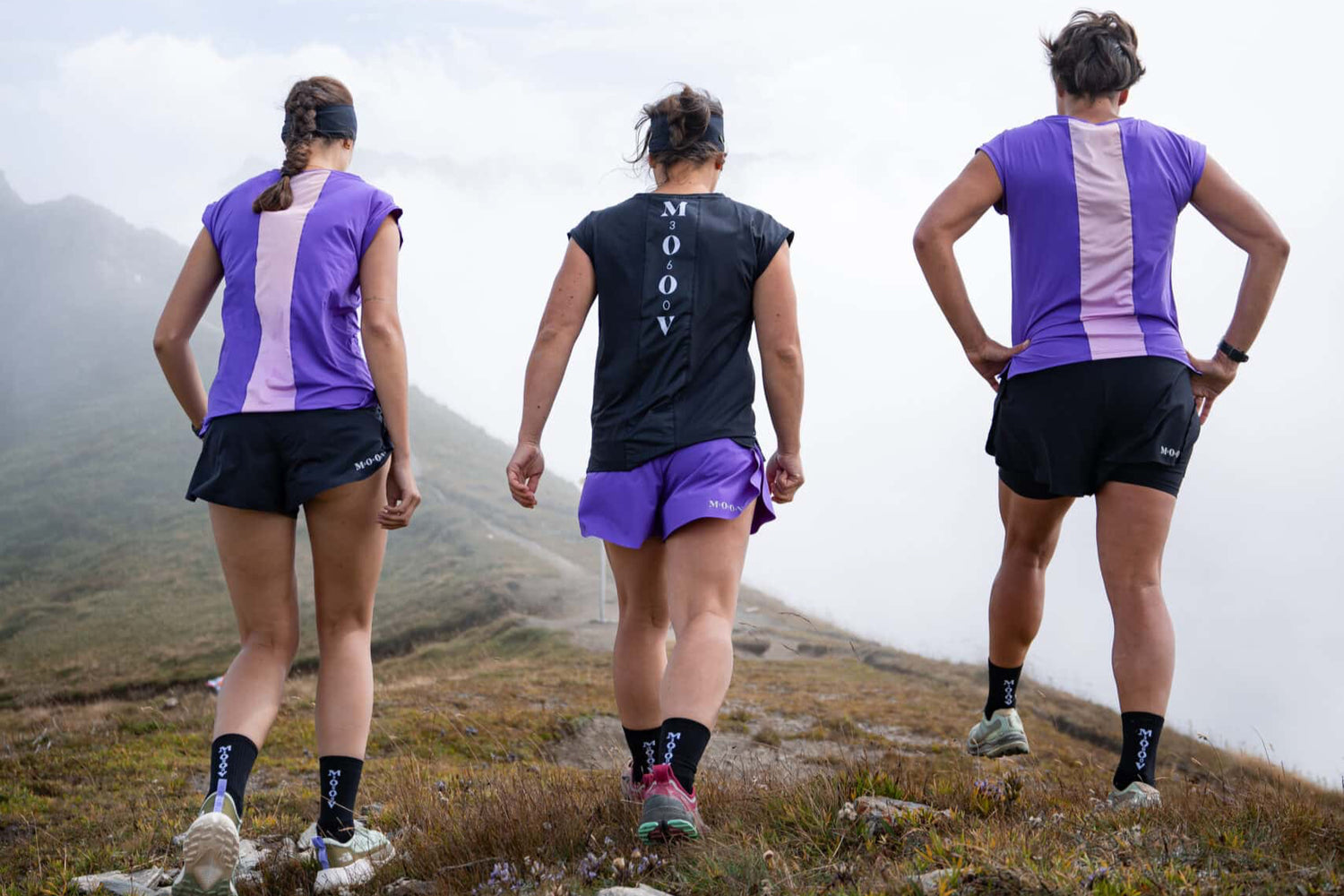Eco-responsible textiles
Offering a range of comfortable clothing with technical qualities perfectly suited to the practice of sport is the primary goal of Moov360… But not only that.
The goal is also to offer sustainable products: not only capable of resisting wear and tear over time, but also gentle on the planet... To achieve this, in-depth consideration of the choice of materials and the manufacturing process was required.
Regenerate nylon
We produce 100 billion items of clothing per year worldwide, or around 12.5 items of clothing per person per year... This inevitably raises the question of textile waste management.
Very often used for sportswear that must be elastic and resistant, nylon is nonetheless a polluting synthetic chemical material, derived from petroleum, whose manufacture requires a large quantity of water and whose decomposition into microplastics harms aquatic ecosystems.
Fortunately, while there is currently no large-scale industrial process for separating natural fibers from synthetic fibers, we do know how to recycle certain plastics to make raw materials for the textile industry, among other things.
Nylon is one of them, and the production of its recycled version, Econyl®, saves up to 80% in greenhouse gas emissions compared to virgin nylon.
It is found in the same clothing as those made of nylon (swimsuits, sportswear) which must be elastic and resistant and for which alternatives in natural materials are still rare.
Ocean protection
Econyl ® (registered trademark of the Italian firm Aquafil), is a 100% recycled nylon fiber, made from plastic waste that is first sorted and washed before being crushed, melted, and then spun again. The resulting Econyl ® is used to make new clothing, which is itself 100% recyclable.
And in addition to being less energy and water intensive, the production of Econyl ® contributes to the protection of marine ecosystems: the used nylon it is made from comes from fabric scraps, carpet fluff or abandoned fishing nets, recovered from the oceans, where they would have taken decades to degrade and where they are a mortal danger for animals... It is estimated that 100,000 animals die each year , strangled or suffocated in these traps.
European short circuit
Currently, this is the material that Moov360 has chosen for the production of its collection, while continuing its search for other natural and recyclable textiles or those made from recycled waste.
As for the production chain, it is 100% European: the collections are designed in Belgium, Econyl® is produced in Italy and the manufacturing is also Italian.
The ecological footprint of finished products is therefore limited.
And to take the eco-responsible approach to the end and take a further step towards the circular economy, Moov360, which already reuses its fabric scraps to make accessories (sports bags, fanny packs, pouches), offers its customers the option of collecting end-of-life clothing to recycle it into headbands, wristbands or cloths...
The circle is complete.
Daphne Dulait






